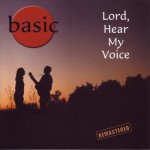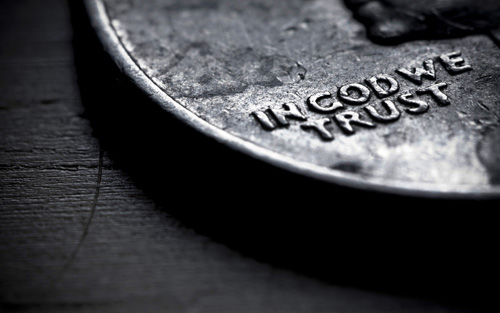 There’s a song. It’s a song that I wrote. The words actually seem a bit out of order:
There’s a song. It’s a song that I wrote. The words actually seem a bit out of order:
“More of you and of me less…”
(Sometimes when you write songs, the words fit better when they’re “out of order”.)
But the words are still true.
(If you have time, or can listen while you read—or both?—you can find the song here.)
I have been hearing more and more again lately how the most important things in life are to put ourselves in a place of complete reliance on our Father—for everything in life, as it’s all from, through, and for him to begin with—and how in direct correlation, our own self and interests must diminish.
The song, written nearly twenty years ago now, was something I began singing while playing around with a chord loop on my Yamaha acoustic guitar (now in the possession and occasional employ of our oldest son) … “Take my life, Lord… make it wholly yours.” John the Baptist said, regarding Jesus, “He must become greater and greater, and I must become less and less.” (John 3:30) Those words were reverberating in my heart and mind while I hummed and strummed a new tune … and thus was born a song.
And the theme has never diminished.
You’ve read it here, to be sure. There is a recurring realization that I frequently share on these pages: That Jesus is Life and Life is Jesus. They are synonymous and inseparable. (And they are separately unattainable, as they do not exist apart from each other.) We can produce no fruit—a visible sign of life—apart from him. Jesus tried to make that abundantly clear to us, both through his words and his actions.
Equally so, he wanted us to realize that to put him first, to follow him, means to put our own agendas and interests and even our life down—actually, to death.
If any of you wants to be my follower, you must turn from your selfish ways, take up your cross daily, and follow me.” (Luke 9:23)
That is so ridiculously hard for all of us at some points, and some of us at most points.
So how do we actually “die to self” in order to receive this Life that we can find in Jesus? What does this look like?
To me, it’s often this:
Don’t be selfish; don’t try to impress others. Be humble, thinking of others as better than yourselves. Don’t look out only for your own interests, but take an interest in others, too.
You must have the same attitude that Christ Jesus had. (Philippians 2:3-5)
Now… that may be what it looks like, and I see that Paul said we “must” have the same attitude as Jesus, but again … how?
I keep coming back to this symbiotic relationship of “more of you” (Jesus, Father, Spirit) and “of me less”.
Do you remember symbiotic relationships from biology classes, or maybe books of that topic, if that is an interest of yours? Wikipedia describes it thusly: Symbiosis (from Ancient Greek σύν “together” and βίωσις “living”) is close and often long-term interaction between two or more different biological species.
That sounds about right.
He is wholly other than us. His ways are not our ways, and all such similar sayings.
“Yes, I am the vine; you are the branches. Those who remain in me, and I in them, will produce much fruit. For apart from me you can do nothing.” (John 15:5)
And…
We know how much God loves us, and we have put our trust in his love. God is love, and all who live in love live in God, and God lives in them. (1 John 4:16)
AND…
…let us strip off every weight that slows us down, especially the sin that so easily trips us up. And let us run with endurance the race God has set before us. We do this by keeping our eyes on Jesus, the originator and perfecter of our faith… (Hebrews 12:1-2)
It’s all about him, and not about us. And, likewise, it’s all about humbly serving, giving, loving others—endlessly, without agenda, without “strings attached”—because all of us have limitless value to our Creator, and so regardless of how we are treated (or any self-benefit), we serve, love, give… as we have received from Father.
Just like Jesus.
But it only works if we first focus our hearts and minds on him. That is so important.
If we are doing selfless in our own strength, just “because it’s right” … well, that won’t last. We must be filled, too. You matter, too. But if I am angling to take care of me, then I will be missing the Life that Jesus wants to give me. He gives Life. Not me.
(I just get to share what he gives.)
Oh that you and I could daily understand this truth more and more. It’s so abundant through the entirety of the Scriptures.
One last one:
I pray that from his glorious, unlimited resources he will empower you with inner strength through his Spirit. Then Christ will make his home in your hearts as you trust in him. Your roots will grow down into God’s love and keep you strong. And may you have the power to understand, as all God’s people should, how wide, how long, how high, and how deep his love is. May you experience the love of Christ, though it is too great to understand fully. Then you will be made complete with all the fullness of life and power that comes from God.
Now all glory to God, who is able, through his mighty power at work within us, to accomplish infinitely more than we might ask or think. Glory to him in the church and in Christ Jesus through all generations forever and ever! Amen. (Ephesians 3:16-21)
More of him. Less of me. That’s the way it ought to be.
(Hey… maybe that could be a song…) 😉

 Rest is currently the word reverberating through various sectors of my life.
Rest is currently the word reverberating through various sectors of my life. If you are a fan of history, and perhaps also an American citizen—both of which I am—then I hope you’ve enjoyed this look at our Constitution, and the Bill of Rights, as seen through the eyes, words, and actions of the people who constructed it. It’s very interesting to see where we’ve come from, how it began, and even the direction we are going.
If you are a fan of history, and perhaps also an American citizen—both of which I am—then I hope you’ve enjoyed this look at our Constitution, and the Bill of Rights, as seen through the eyes, words, and actions of the people who constructed it. It’s very interesting to see where we’ve come from, how it began, and even the direction we are going.
 I wrote a new song recently. Actually, I wrote two. (That was quite odd. Two in one day was a new experience for me.)
I wrote a new song recently. Actually, I wrote two. (That was quite odd. Two in one day was a new experience for me.) Deep within the heart of mankind is a hesitancy, if not an outright refusal to accept responsibility. Some of us are able to work up the courage on occasion, but generally our first (and second, and third) response is to point the finger at someone else.
Deep within the heart of mankind is a hesitancy, if not an outright refusal to accept responsibility. Some of us are able to work up the courage on occasion, but generally our first (and second, and third) response is to point the finger at someone else. I wouldn’t usually post such photos here. But I guess I’m trying to make a point.
I wouldn’t usually post such photos here. But I guess I’m trying to make a point.

 And, honestly, she doesn’t really agree with my instruction, that Christianity is not the same as Jesus.
And, honestly, she doesn’t really agree with my instruction, that Christianity is not the same as Jesus. One thing that our son Cameron is good at is common courtesies. He’s very good at remembering to say “please”, and he’s nearly flawless with “thank you”, and he’s famous for his, “Wehcm.” (That’s his version of “you’re welcome”, said quickly with an emphasis on the harder “m” sound to end the word.)
One thing that our son Cameron is good at is common courtesies. He’s very good at remembering to say “please”, and he’s nearly flawless with “thank you”, and he’s famous for his, “Wehcm.” (That’s his version of “you’re welcome”, said quickly with an emphasis on the harder “m” sound to end the word.)